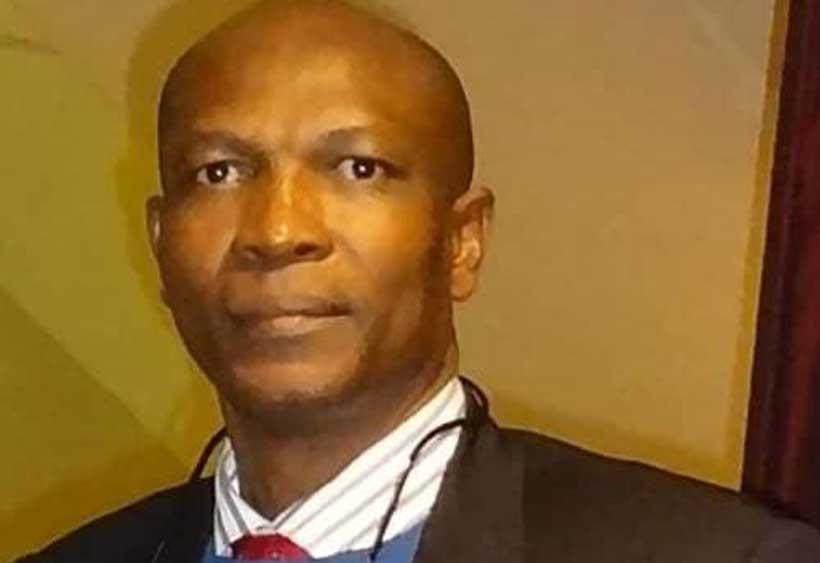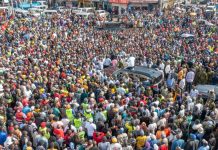By
Kester Kenn Klomegah
Africa-Press – Kenya. As Africa prepares to commemorate the 80th Anniversary of the historic 5th Pan-African Congress of 1945, the continent stands at a defining moment in its modern history. The forthcoming Accra Pan-African Conference, scheduled for November 18–19, 2025, marks not only a commemoration of past struggles but also a strategic moment to reimagine Africa’s collective future.
Across the continent, profound political and economic transformations are unfolding. The emergence of the Sahelian Transition Model (STM), spearheaded by Burkina Faso, Mali, and Niger, has rekindled discourse around sovereignty, self-reliance, and continental unity. These developments are reshaping Africa’s geopolitical landscape and testing the resilience of regional institutions such as ECOWAS and the African Union.
In this exclusive conversation, Comrade Humphrey Quaye, the Head of the Pan-African Progressive Front (PPF), Headquarters in Accra, Ghana,shares insights on the significance of the 2025 Accra Congress, the evolving perceptions of Pan-Africanism, and the strategic imperatives for Africa’s ongoing decolonization and sustainable development. Here are the interview excerpts:
The upcoming 80th Anniversary of the 5th Pan-African Congress comes at a time of profound change across Africa. How do you assess the current perceptions and attitudes toward this new Pan-African moment, especially given the transformations taking place in the Sahel and beyond?
Humphrey Quaye: Indeed, this year’s Congress in Accra carries deep symbolic and strategic importance. It represents both a commemoration of the heroic legacy of 1945 and a renewal of Pan-African purpose for the 21st century. Across the continent, we are witnessing what I would call a “second awakening.” A reassertion of African sovereignty, identity, and vision. The Sahelian Transition Model (STM) has emerged as one of the most striking manifestations of this resurgence. It reflects a determination among African nations to reclaim control over their resources, reimagine governance on their own terms, and break from externally imposed models.
This revival of Pan-African consciousness is characterized by four key trends:
1. A renewed Pan-African spirit, rooted in economic independence, reparative justice, and self-determination.
2. A focus on sovereignty and self-reliance, particularly through the control of natural and strategic resources.
3. A cultural renaissance that affirms African values, languages, and epistemologies as central to development.
4. And a geopolitical realignment, as African states diversify partnerships and reject dependency.
However, this moment also comes with challenges. Chief among them is the need to prevent fragmentation between regional blocs such as the Alliance of Sahel States (AES) and ECOWAS. The task before us is to build complementarity rather than competition and to define a Pan-Africanism that reflects both unity and diversity.
How are Africa’s political and business elites responding to these new dynamics? Do you believe these ideas can take root across the wider continent?
Humphrey Quaye: There’s growing awareness among African elites that political independence without economic sovereignty is incomplete. The message from the Sahel and from Pan-African movements everywhere is clear: Africa must take full ownership of its destiny.
To achieve this, several strategic pathways are emerging: Strengthening democratic institutions to guarantee accountability and protect citizens’ rights.
Deepening regional cooperation to promote trade, infrastructure, and collective security.
Empowering citizens, especially youth and women, as active participants in governance.
Reconciling sovereignty with regional unity so that independence does not lead to isolation.
And diversifying partnerships, engaging all nations based on equality and mutual respect.
These principles can indeed take root, provided there is political will and civic vigilance. The Africa we envision is one where democracy, dignity, and development reinforce one another.
Would you say Africa today faces a renewed “scramble” for its resources? And what structural weaknesses continue to hinder our economic transformation?
Humphrey Quaye: Yes, we are undeniably witnessing a new scramble for Africa’s resources driven by global competition over energy, technology, minerals, and agricultural land. But this time, Africa must define the rules of engagement. Our challenge is to move from being a supplier of raw materials to becoming a producer of value.
Unfortunately, several structural barriers persist: weak infrastructure across primary education and healthcare, transport, energy, and technology sectors. Overreliance on primary commodities, with limited diversification. Governance and institutional weaknesses, including corruption and poor accountability. Low human capital investment, especially in technical and scientific education. And growing climate vulnerabilities that threaten food and water security. These issues can only be overcome through strategic planning, continental collaboration, and Pan-African solidarity.
How significant, then, is the 2025 Conference in Accra in addressing these challenges? And what kind of participation is expected?
Humphrey Quaye: The Accra Conference is a landmark event. It is both a commemoration and a call to action. Its central themes—reparations, economic emancipation, sovereignty, and unity—capture the essence of the unfinished Pan-African mission. Among the expected highlights is the Accra Declaration, which will outline a framework for deepening African integration and affirm the vision of a Government of United African States.
Participation will be broad and inclusive, bringing together heads and former heads of state and representatives of African governments, Pan-African organizations from the continent and the diaspora, civil society movements, labor and trade unions, students, youth and women’s networks, academics, cultural leaders, and the global African diaspora. This will not be a ceremonial gathering but a strategic conference. A space to redefine Pan-Africanism for a new generation.
Some critics argue that resolutions from previous Pan-African congresses have often been forgotten or unimplemented. Why do you think this has happened, and what can be done differently this time?
Humphrey Quaye: That criticism is valid and must be acknowledged honestly. The main reasons for limited implementation have been lack of political will, as leaders prioritize national over continental agendas. Weak institutional frameworks within the AU and other regional bodies. Dependence on external financing, which constrains policy independence. Fragmented civic engagement, where citizens are excluded from follow-up processes. And geopolitical interference, which has often undermined unity.
This time, we must institutionalize accountability. We need mechanisms within the AU and regional courts to track and enforce Pan-African commitments. Civil society must act as the moral compass. And most importantly, we need leaders of conviction: men and women who see Pan-Africanism not as rhetoric but as destiny.
Finally, what are the key strategies for guiding Africa’s ongoing decolonization and ensuring true continental unity?
Humphrey Quaye: Africa’s decolonization is not complete until it extends to the economic, cultural, and intellectual domains. The strategies ahead include:
Strengthening continental institutions like the AU and AfCFTA to consolidate integration.
Pan-African education and media, to nurture a shared consciousness among our youth.
Decolonizing knowledge and teaching history and science from African perspectives.
Promoting local ownership of resources and industries.
Climate-conscious development, ensuring environmental justice and sustainability.
And global solidarity, aligning with the Global South for a just and multipolar world order.
Whether we arrive at a federal, confederal, or regionalized model of governance, the guiding principle remains unity with purpose. Pan-Africanism is not just an idea. It is the political, moral, and spiritual foundation of Africa’s future.
Closing Note—As the world commemorates eight decades since the Manchester Congress of 1945, the Accra Pan-African Conference of 2025 represents both a renewal of the liberation mission and a blueprint for Africa’s transformation. For the Pan-African Progressive Front, this moment is more than symbolic. It is the launching point for a new Pan-African decade: one defined by justice, sovereignty, and the unity of all African peoples, on the continent and across the Diaspora.
moderndiplomacy
For More News And Analysis About Kenya Follow Africa-Press






